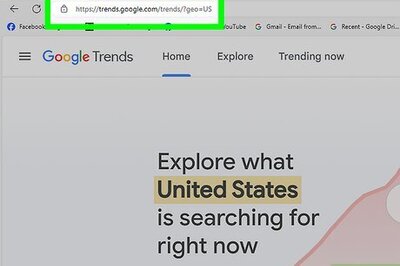
views
TOKYO: Brent oil prices rose on Wednesday to the highest since February after Saudi Arabia agreed to make bigger cuts in output than expected during a meeting with allied producers, while industry data showed U.S. crude stockpiles fell last week.
Brent crude rose as much as 0.6% to $53.94 a barrel, the highest since Feb. 26, 2020. It was at $53.79 a barrel at 0147 GMT and gained 4.9% on Tuesday.
U.S. West Texas Intermediate (WTI) futures gained 13 cents, or 0.26%, to $50.06 a barrel. The contract on Tuesday closed up 4.6% at $49.93, its highest since Feb. 24, 2020.
Saudi Arabia, the world’s biggest oil exporter, agreed on Tuesday to make additional, voluntary oil output cuts of 1 million barrels per day (bpd) in February and March, after a meeting with the Organization of the Petroleum Exporting Countries (OPEC) and other major producers that form the group known as OPEC+.
The reductions agreed by Saudi Arabia were included in a deal to persuade other producers in the OPEC+ group to hold output steady.
With coronavirus infections spreading rapidly in many parts of the world producers are trying to support prices as demand takes a hit from new lockdowns being put in place.
“The decision came as a huge surprise as the organisation struggled yesterday to agree to a deal,” Capital Economics said in a note.
It “adds weight to our view that the oil market will be in a deficit … which will help lift the price of Brent to $60 per barrel by end-year,” it said.
OPEC member Iran’s seizure of a South Korean tanker in the Gulf also supported prices on Wednesday.
Tehran denied it was holding the ship and its crew as hostages, a day after it seized the tanker while pushing for Seoul to release $7 billion of funds frozen under U.S. sanctions.
U.S. crude oil inventories dropped by 1.7 million barrels in the week to Jan. 1 to 491.3 million barrels, data from industry group the American Petroleum Institute showed late on Tuesday.
Disclaimer: This post has been auto-published from an agency feed without any modifications to the text and has not been reviewed by an editor
Read all the Latest News, Breaking News and Coronavirus News here




















Comments
0 comment